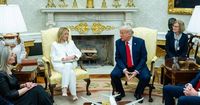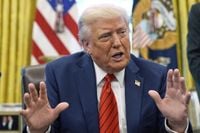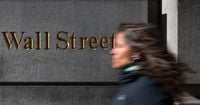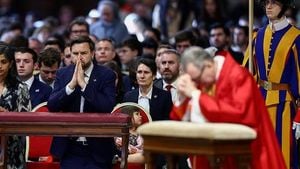President Donald Trump’s administration has escalated its ongoing battle with Harvard University, threatening to block the institution from enrolling international students while calling for the withdrawal of its tax-exempt status. This confrontation raises the stakes in what has become a contentious showdown between the White House and the nation’s oldest and most prestigious university, which has openly defied the administration’s demands regarding campus activism, antisemitism, and diversity.
On April 18, 2025, the Trump administration made a significant move by demanding records from Harvard related to foreign funding. The Education Department sent a formal request to the university, asking for a comprehensive list of all foreign gifts, grants, and contracts. Education Secretary Linda McMahon stated that Harvard has “not been fully transparent or complete in its disclosures, which is both unacceptable and unlawful.” This records request follows the administration's earlier threats, which included freezing nearly $2 billion in federal grants and loans after Harvard rejected demands related to its campus policies.
International students constitute a significant portion of Harvard's student body, making up approximately 27%. The majority of these students are in graduate programs, often engaging in globally recognized research that contributes to the university's standing. Trump’s attack on Harvard is seen as part of a broader campaign against institutions that the administration perceives as hostile to its agenda. “I think Harvard’s a disgrace,” Trump remarked, underscoring his administration's disdain for the university's policies.
In addition to the conflict with Harvard, the Trump administration is also grappling with challenges in the Food and Drug Administration (FDA), where it is scrambling to hire contractors to replace staff who supported safety inspections. This upheaval follows Robert F. Kennedy Jr.'s efforts to reduce the federal health workforce, which has raised concerns about the impact on public health and safety.
Meanwhile, the U.S. is facing a critical situation regarding rare earth elements, vital for various technologies and military applications. The only rare earths mine in the U.S., located in California's Mojave Desert, is seeing increased demand from companies anxious about China's recent export limits on these minerals. Matt Sloustcher, a spokesperson for MP Materials, noted that the effects of China's restrictions have been immediate, prompting a push for new mining operations in the U.S. to meet growing demand.
On the diplomatic front, George Glass, the newly appointed U.S. ambassador to Japan, arrived in Tokyo on April 11, 2025. Glass expressed optimism about reaching a tariffs deal between the U.S. and Japan, following the first round of tariff talks held in Washington. His arrival comes amid rising tensions over Trump’s tariff measures, which have sparked global concerns about their economic impact.
In a related development, the dollar has experienced a strange sell-off, raising concerns among economists about a potential loss of confidence in the U.S. economy under Trump’s trade policies. The dollar's decline is viewed as alarming, especially as it plays a crucial role in international trade. The administration's aggressive tariff strategy has left many investors and analysts uncertain about the future.
As Trump prepares to participate in a swearing-in ceremony for Dr. Mehmet Oz, confirmed by the Senate to lead the Centers for Medicare and Medicaid Services, U.S. Secretary of State Marco Rubio indicated that the administration may soon pivot away from pursuing peace efforts between Ukraine and Russia if no progress is made. Speaking in Paris, Rubio emphasized the need for a decisive approach, suggesting that the U.S. has other priorities to focus on.
The Trump administration’s scrutiny extends beyond universities and foreign policy, as it now targets civil society groups, including environmental organizations and ethics watchdogs like Citizens for Responsibility and Ethics in Washington (CREW). Trump’s remarks signal a campaign of retribution against institutions viewed as adversarial to his administration.
In a dramatic expansion of the U.S. immigration detention system, the administration aims to increase capacity to hold tens of thousands more migrants. Critics argue this move serves the interests of private prison companies and raises concerns about the treatment of detainees. Todd Lyons, the acting director of ICE, suggested that the agency should operate more like a business, indicating a shift towards a more commercialized approach to deportation.
As these developments unfold, the stock market remains on edge, particularly in light of Trump’s April 2 tariff announcement, which has contributed to heightened volatility. The benchmark S&P 500 index fell significantly, down 14% from its February record high. Investors are closely monitoring upcoming earnings reports from major companies, including Tesla and Alphabet, as they seek guidance on the economic fallout from ongoing trade tensions.
The upcoming earnings season is expected to provide critical insights into how companies are navigating the shifting tariff landscape. United Airlines has already issued a warning about potential revenue losses amid economic uncertainty, showcasing the broader impact of Trump’s trade policies on corporate America.
As the Cboe Volatility Index fluctuates, indicating investor anxiety, market participants are left to ponder the implications of the administration’s aggressive stance on trade and its potential long-term effects on the U.S. economy. The coming weeks will be pivotal in determining whether the administration’s strategies will stabilize the markets or lead to further turmoil.
In summary, the Trump administration's confrontational approach towards Harvard, its scrutiny of civil society, and its expansion of immigration detention reflect a broader strategy aimed at reshaping American institutions. As the administration grapples with international trade challenges and domestic economic pressures, the outcomes of these initiatives will have far-reaching implications for the future of the U.S.






